
The lost 1930s masterpiece warning of Nazi horrors
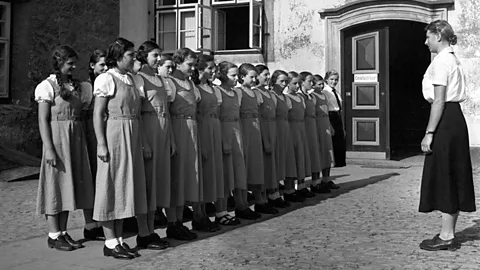 Alamy(Credit: Alamy)
Alamy(Credit: Alamy)Published years before WW2, Sally Carson's prescient novel captures the dawn of Nazi tyranny in a small German town – and remains relevant today.
Eighty years after VE Day, enthusiasm for the World War Two novel remains undimmed.
Demand for tales of wartime Europe, always healthy, has swelled notably since the publication of Anthony Doerr's lyrical All the Light We Cannot See, awarded the Pulitzer Prize in 2015 and subsequently adapted into a Netflix series. Love stories, battle stories, codebreaker stories, resistance stories, concentration camp stories – all have landed on bestseller lists around the world.
And while many novelists in this sub-genre have drawn skillfully on documents, letters and eye-witness accounts eight decades old, the world is unlikely ever again, at this far remove, to see a new work of fiction based on personal experience of that era. Which is one reason Crooked Cross, republished this spring by Persephone Books, is such an extraordinary read. The author, Sylvia "Sally" Carson, a young Englishwoman, was inspired by visits to friends in Bavaria in the early 1930s to write a novel about the dawn of Nazi tyranny in a small German town.
Carson proved remarkably prescient about the horrors to come, and yet after her premature death, in 1941, her novel sank into obscurityThe celebrated US novelist EL Doctorow, author of Ragtime, Billy Bathgate and other works of fiction set in the past, once said: "The historian will tell you what happened. The novelist can tell you what it felt like." And Carson's achievement is to bring to vivid life the fictional Kluger family, residing near the mountains south of Munich who over the course of six months – Christmas Eve 1932 to Midsummer Night 1933 – see their lives shattered.
Carson wrote Crooked Cross – the title refers to the swastika symbol adopted by the Nazis – at speed. It was published in 1934, a year after the events she recounts. Reviews were laudatory, and Carson turned her novel into a play that premiered at the Birmingham Repertory Theatre in 1935, transferring to London's West End two years later. Carson proved remarkably prescient about the horrors to come, and yet after her premature death, in 1941 from breast cancer, her novel sank into obscurity. Persephone's decision to reissue it now is a wise and welcome one.
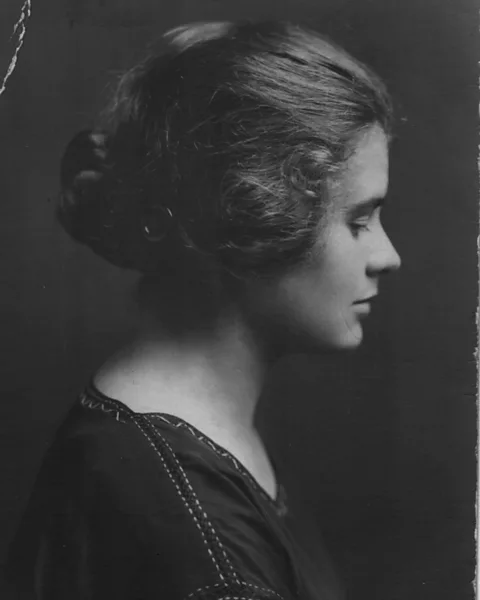 Persephone BooksSylvia "Sally" Carson was inspired to write a novel about the dawn of Nazi tyranny in a small German town (Credit: Persephone Books)
Persephone BooksSylvia "Sally" Carson was inspired to write a novel about the dawn of Nazi tyranny in a small German town (Credit: Persephone Books)The action opens when Hans and Rosa Kluger, and their three adult children – daughter Lexa, and sons Helmy and Erich – gather for the Christmas holiday. Life is hard in Depression-era Germany. Herr Kluger's salary at the Post Office has been cut, eldest son Helmy is out of work, and Erich's seasonal job as a ski instructor requires humiliating catering to the whims of rich women. But Christmas is "a time for the knitting together of personal happiness, and of completing the magic circle of their family," Carson writes. Lexa's handsome and successful fiancé, the young surgeon Moritz Weissman, is included in all the celebrations.
When Helmy and Lexa take charge of decorating the tree – the two siblings have always been close – the festive setting is described precisely, with a passing reference to "Helmy's picture of Hitler" that sits on the piano, decorated with fir twigs, like everything else in the cosy house. The scene lulls the reader into believing, despite the flicker of menace, that nothing can break this loyal, decent and loving clan.
A month later, in January 1933, Hitler is appointed Chancellor, and the Machtergreifung, as the Germans call the Nazi consolidation of power, begins. Within days, Helmy is rewarded for his early allegiance to the Nazis, and their promises to make the nation prosperous again, with a job as the local party secretary; Moritz, who has a Jewish father, is dismissed from the Munich clinic where he works.
Modern and personal parallelsCarson demonstrates compassion for all her characters, alongside razor-sharp insight into their very human weaknesses. Helmy, a sensitive, conscientious man, nonetheless falls into line with evil ideology. He tries to persuade his sister that, in the new reality, she must break off her engagement and never see Moritz again. Lexa resists, clinging to the hope that in faraway Berlin, Hitler will be tossed out of government.
Instead, as the mountain meadows turn green in the spring, the family's world darkens further. Erich quits his servile job to join the brownshirts, and swaggers around town in his uniform and jackboots – the Kluger parents feel intense pride, although Herr Kluger, a veteran of World War One, remains wary about another bloody conflict. The idealistic Helmy attends a Nazi rally and is mesmerised. Carson writes: "He had no warning of the destruction that would be caused by the setting free of that power for which he now shouted as hoarsely as the others… Hitler was to them like some splendid deliverer; a god… Their arms flew out in the same signal – a forest of stretching brown arms with the fingers pointing to the little god with a toothbrush moustache. Heil Hitler!"
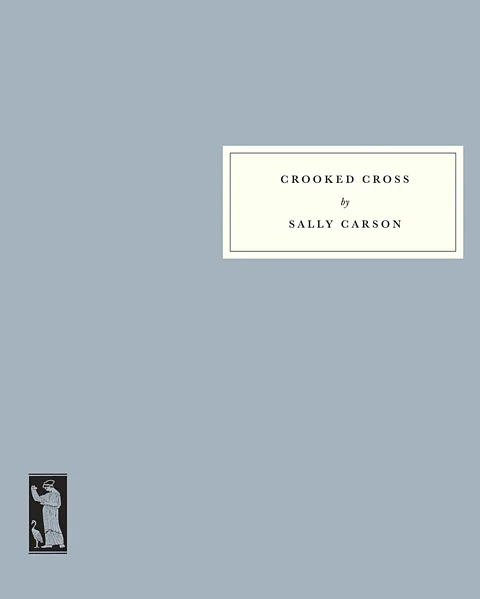 AlamyThe action of Crooked Cross centres on the Kluger family in Depression-era Germany (Credit: Alamy)
AlamyThe action of Crooked Cross centres on the Kluger family in Depression-era Germany (Credit: Alamy)Moritz, stripped of work and income, no longer even permitted to borrow books from the public library, falls into despondency. Seeking a carefree evening, Lexa persuades him to take her to a dance. On the crowded floor, while doing the foxtrot, the two accidently bump against another couple. Moritz turns to apologise. "Blast you!... you filthy Jew… Get out of the way," the other man shouts.
Carson told the Bradford Observer newspaper how she had heard these exact words thrown at the Jewish man who partnered her at a dance hall while she was on holiday in Bavaria.
On Midsummer Night, when the violence simmering under the surface in this idyllic corner of Germany explodes into clear view, Lexa conclusively chooses her love for Moritz over all other loyalties, and the results are devastating. (To say more would be to ruin the story.)
More like this:
• The fake Hitler diaries that fooled the press
• How Oskar Schindler saved 1200 Jewish people in WW2
• How music saved a cellist's life in Auschwitz
The novel, which concerned itself only with the domestic realm, still shows with chilling force how a civilised nation could be captured by authoritarianism. Speaking on the BBC Radio 4 news programme Today, Francesca Beauman – the historian who is the editorial director of Persephone Books – cited a review in the Acton Gazette at the time of the book's publication. "Crooked Cross is more truthful than telegraphed reports; it is fairer than propaganda, and it is more interesting than either."
What would you do if the people you love begin to espouse ideas you hate?Not all of Carson's contemporaries desired to hear the warning embedded in Crooked Cross. When her play moved to the London stage in 1937, some in Britain blasted it as anti-German, and the Lord Chamberlain's office insisted every "Heil Hitler" be removed. Much of the British establishment at that time hoped to peacefully co-exist with the bellicose regime in Berlin.
Some readers will be quick to draw modern parallels, especially to the rise of right-wing populism around the world, and the propensity for young men to be seduced by extremist movements, when they feel – as millions did in 1930s Germany – purposeless, disaffected or lost. But the real question that Crooked Cross raises is personal. What would you do if the people you love begin to espouse ideas you hate?
Now that Carson's indelible portrait of the tragic Kluger family has resurfaced, it warrants a permanent place in the growing canon of World War Two literature.
Crooked Cross by Sally Carson is published by Persephone Books, which reprints neglected fiction and nonfiction mostly by women.
Clare McHugh is the author of the historical novel, The Romanov Brides.
--
If you liked this story, sign up for The Essential List newsletter – a handpicked selection of features, videos and can't-miss news, delivered to your inbox twice a week.
For more Culture stories from the BBC, follow us on Facebook, X and Instagram.
BooksWarHistoryFeaturesWatch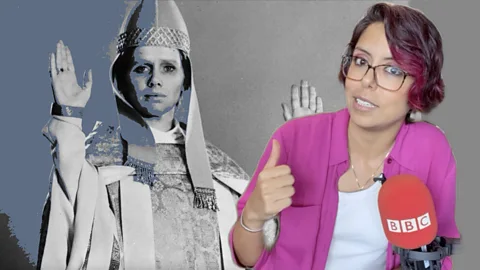 Pope Joan: the woman who fooled the church
Pope Joan: the woman who fooled the churchA woman who allegedly was the head of the Catholic Church became one of the most controversial Middle Ages tales.
11 hrs agoHistory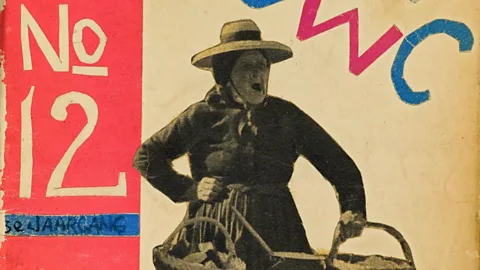 The secret WW2 magazine ridiculing Hitler's mother
The secret WW2 magazine ridiculing Hitler's motherHiding in an attic, Jewish man Curt Bloch found inspiration through crafting anti-Nazi parody.
1 day agoHistory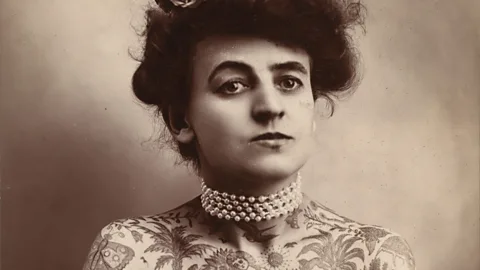 Why we're still talking about Maud Wagner
Why we're still talking about Maud WagnerHow America's first professional female tattooist broke through into an art form historically dominated by men.
4 Mar 2025History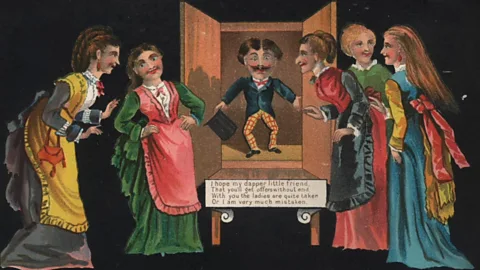 The insulting 'Vinegar Valentine' of Victorian England
The insulting 'Vinegar Valentine' of Victorian EnglandValentine’s Day is thought to celebrate romance but rude cards soured the holiday for its recipients.
14 Feb 2025History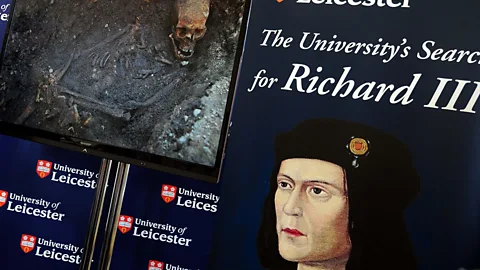 Richard III: The 'accidental' photo of a long-lost king
Richard III: The 'accidental' photo of a long-lost kingWhy a famous photograph of King Richard III's skeleton was a happy 'accident'.
11 Feb 2025History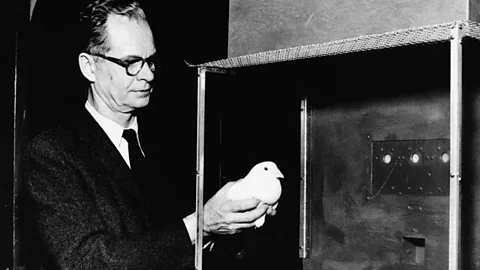 The WW2 experiment to make pigeon-guided missiles
The WW2 experiment to make pigeon-guided missilesAn unexpected WW2 experiment by behaviourist B F Skinner proved that pigeons could be used for missile guidance.
4 Feb 2025History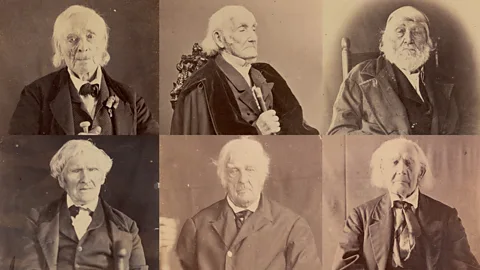 America's last Revolutionaries: Rare photos of US patriots
America's last Revolutionaries: Rare photos of US patriotsHow a dwindling group of veterans from the American War of Independence were featured in early photographic form.
7 Jan 2025History Idris Elba on moment he learned about Mandela's death
Idris Elba on moment he learned about Mandela's deathThe actor recalls being at the Mandela film premiere when he heard the anti-apartheid politician had died.
7 Dec 2024History Why Cher has waited until now to write her memoir
Why Cher has waited until now to write her memoirCher explains why she has finally written her memoir and who it's for.
2 Dec 2024Books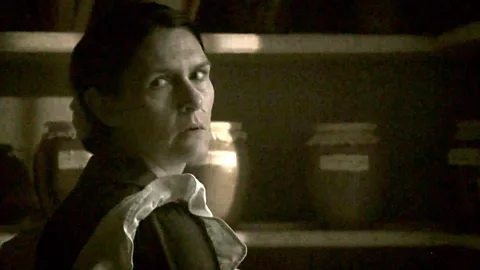 Mary Mallon: 'The most dangerous woman in America'
Mary Mallon: 'The most dangerous woman in America'How Mary Mallon, an Irish cook for New York's elite, became known as the 'most dangerous woman in America'.
17 Nov 2024History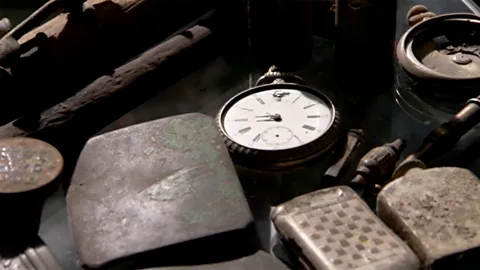 World War One relics live on in the fields of Europe
World War One relics live on in the fields of EuropeThe battlegrounds of World War One are still giving up their revealing evidence of bitter fighting.
12 Nov 2024History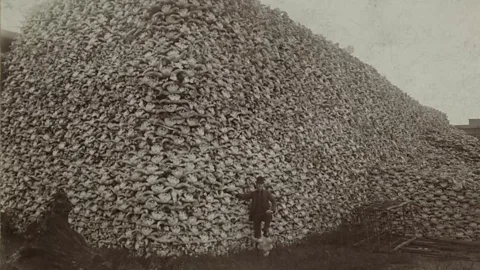 The picture that tells a lesser-known chapter of US history
The picture that tells a lesser-known chapter of US historyHow a 1892 photo from Rougeville, Michigan, became the most iconic image of the bison massacre in America.
22 Oct 2024History The history of swing states in the US
The history of swing states in the USThe US Presidential elections did not always depend on just these seven states.
21 Oct 2024History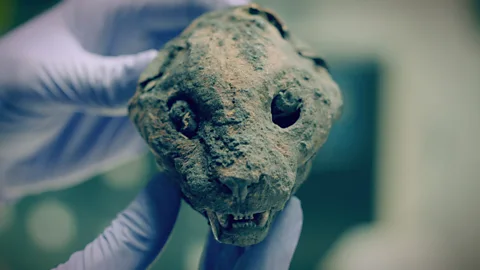 Why tonnes of mummified cats ended up in England
Why tonnes of mummified cats ended up in EnglandIn 1890 an estimated cargo of 180,000 ancient felines, weighing 19.5 tonnes, were auctioned off in Liverpool.
18 Sep 2024History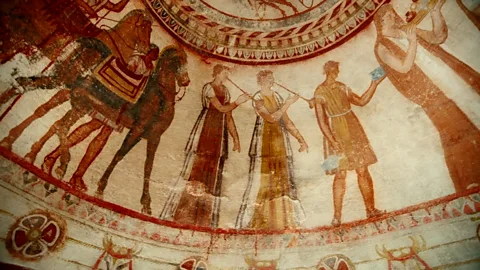 Inside the ancient royal tomb found by accident
Inside the ancient royal tomb found by accidentThe Thracian Tomb of Kazanlak was accidentally discovered by Bulgarian soldiers digging up shelters in 1944.
11 Sep 2024Archaeology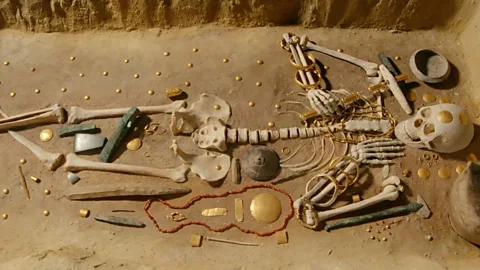 Varna Necropolis: World's oldest gold treasure
Varna Necropolis: World's oldest gold treasureThe Varna treasure is considered the world's oldest human processed gold, dating back 6,500 years.
10 Sep 2024Archaeology The giant 350-year-old model of St Paul's Cathedral
The giant 350-year-old model of St Paul's CathedralHiding in a London cathedral is an intricate wooden mock-up of Sir Christopher Wren's masterpiece.
5 Sep 2024History Uncovering the sunken relics of an ancient city
Uncovering the sunken relics of an ancient cityBettany Hughes goes underwater in search of ancient archaeological finds in historic Sozopol, Bulgaria.
4 Sep 2024Archaeology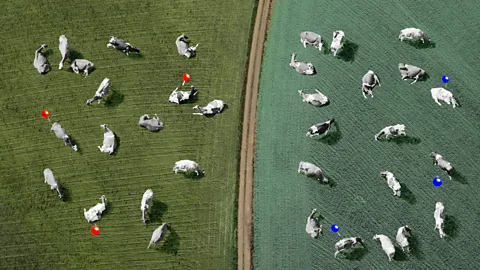 Texas fever: The lesser-known history of the US border
Texas fever: The lesser-known history of the US borderIn 1911, a fence was constructed on the US-Mexico border. But its purpose was not to stop humans.
18 Aug 2024History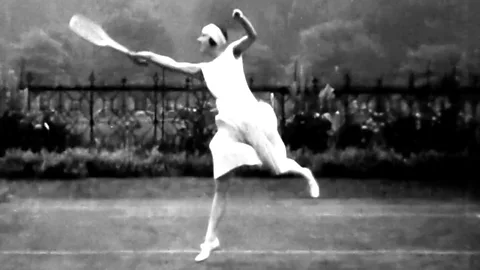 Century-old Olympics footage brought back to life
Century-old Olympics footage brought back to lifeA look through footage from the Paris 1924 Olympics gives viewers a chance to reflect on how much has changed.
9 Aug 2024SportMore7 hrs ago Where to get New York City's best Chinese food
Where to get New York City's best Chinese foodProud New Yorker chef Calvin Eng is known for his daring reinterpretations of Chinese cuisine. Here's where he goes when he wants homestyle Chinese food, from dim sum to egg tarts.
7 hrs agoTravel10 hrs ago Renewable energy's trouble with 'wind theft'
Renewable energy's trouble with 'wind theft'As wind farms expand, some can accidentally "steal" each others' wind – causing worries over some countries' energy transition to net zero.
10 hrs agoFuture11 hrs ago Pope Joan: the woman who fooled the church
Pope Joan: the woman who fooled the churchA woman who allegedly was the head of the Catholic Church became one of the most controversial Middle Ages tales.
11 hrs agoHistory15 hrs ago 'I have a WW2 German officers toilet in my garage'
'I have a WW2 German officers toilet in my garage'Guns, uniforms and ammunition are just some of the items collected by Jersey history enthusiasts.
15 hrs agoJersey1 day ago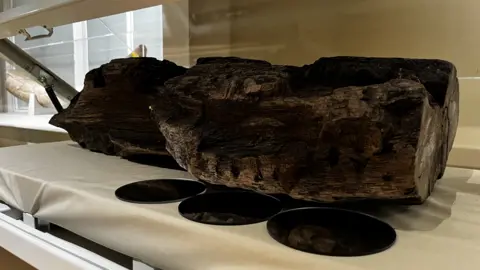 Carved wood dating back 6,000 years goes on display
Carved wood dating back 6,000 years goes on displayThe piece of oak was found by chance in Berkshire and experts believe it is the oldest ever found.
1 day agoBerkshireAP by OMG
Asian-Promotions.com |
Buy More, Pay Less | Anywhere in Asia
Shop Smarter on AP Today | FREE Product Samples, Latest
Discounts, Deals, Coupon Codes & Promotions | Direct Brand Updates every
second | Every Shopper’s Dream!
Asian-Promotions.com or AP lets you buy more and pay less
anywhere in Asia. Shop Smarter on AP Today. Sign-up for FREE Product Samples,
Latest Discounts, Deals, Coupon Codes & Promotions. With Direct Brand
Updates every second, AP is Every Shopper’s Dream come true! Stretch your
dollar now with AP. Start saving today!
Originally posted on: https://www.bbc.com/culture/article/20250506-the-lost-1934-novel-that-gave-a-chilling-warning-about-the-horrors-of-nazi-germany?ocid=global_culture_rss
